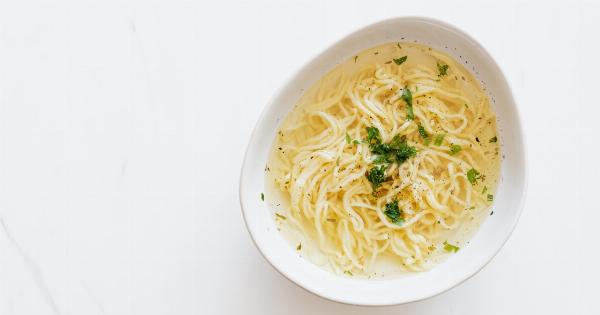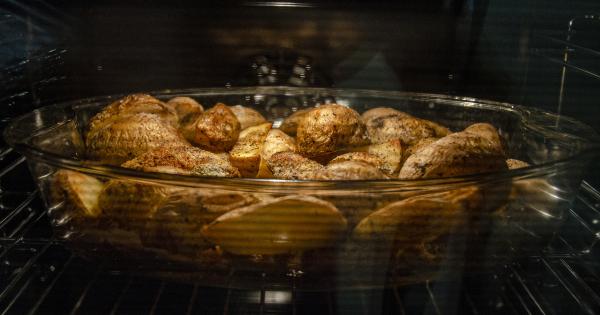Diarrhea is a common gastrointestinal disorder that is characterized by frequent, loose, and watery bowel movements. It can be caused by a variety of factors, including infections, medications, and underlying health conditions.
However, one of the most significant contributors to diarrhea is food intake. The types of food you consume and your dietary habits play a crucial role in the development and prevention of diarrhea.
In this article, we will explore the relationship between diarrhea and food intake and provide valuable insights into how you can make informed dietary choices to maintain a healthy digestive system.
Understanding Diarrhea
Before delving into the connection between food intake and diarrhea, it is essential to understand what causes diarrhea. Diarrhea occurs when the water content in your feces increases, resulting in a loose and watery stool consistency.
This happens when the lining of your intestines fails to absorb the necessary fluids and electrolytes. The most common symptoms of diarrhea include increased frequency of bowel movements, urgency to evacuate the bowels, abdominal cramps, and dehydration in severe cases.
Diarrhea can be acute or chronic, depending on its duration. Acute diarrhea often resolves on its own within a few days or weeks and is commonly caused by viral or bacterial infections.
On the other hand, chronic diarrhea lasts for an extended period and may indicate an underlying health condition such as irritable bowel syndrome (IBS), inflammatory bowel disease (IBD), or a food intolerance.
The Impact of Food on Diarrhea
Your diet plays a crucial role in the development and management of diarrhea. Certain foods can aggravate or alleviate diarrhea symptoms, making it essential to pay attention to your food choices.
Let’s explore how different dietary factors affect diarrhea.
Dietary Triggers for Diarrhea
1. High-Fat Foods:.
A diet high in fat, especially unhealthy saturated and trans fats, can trigger diarrhea. These fats are difficult to digest and can stimulate the intestines to contract, leading to loose stools.
Fried foods, fatty cuts of meat, butter, and pastries are examples of high-fat foods that may exacerbate diarrhea symptoms.
2. Spicy Foods:.
Spicy foods, such as chili peppers and hot sauces, can irritate the digestive system and potentially cause diarrhea.
The chemical compound capsaicin, responsible for the spicy sensation, can stimulate bowel movements and lead to loose stools in sensitive individuals.
3. High-Fiber Foods:.
While a diet rich in fiber is generally beneficial for digestive health, consuming excessive amounts of insoluble fiber can worsen diarrhea symptoms. Insoluble fiber adds bulk to the stool and promotes regular bowel movements.
However, in cases of loose stools, such as diarrhea, increasing fiber intake can further loosen the stool consistency.
4. Lactose-Containing Foods:.
Lactose intolerance is a common condition where the body lacks the enzyme lactase, which is necessary for digesting lactose, the sugar found in milk and dairy products.
Consuming lactose-containing foods can lead to diarrhea, bloating, and abdominal discomfort in individuals with lactose intolerance.
5. Alcohol and Caffeine:.
Both alcohol and caffeine have a diuretic effect, increasing urine production and potentially leading to dehydration. Additionally, they can irritate the gastrointestinal tract, causing diarrhea and other digestive issues.
Dietary Measures to Prevent Diarrhea
While certain foods can trigger diarrhea, others can help alleviate symptoms and support a healthy digestive system. Consider incorporating the following dietary measures into your routine:.
1. The BRAT Diet:
The BRAT (Bananas, Rice, Applesauce, Toast) diet is often recommended for individuals experiencing diarrhea. These foods are easily digestible and have a binding effect on the stool, promoting firmer bowel movements.
2. Probiotics:
Probiotics are beneficial bacteria that help maintain a healthy gut microbiome.
Including probiotic-rich foods like yogurt, kefir, sauerkraut, and kimchi in your diet can improve digestive health and potentially reduce the frequency and severity of diarrhea episodes.
3. Hydration:
Proper hydration is crucial when experiencing diarrhea as it helps replace lost fluids and electrolytes. Drinking water, clear broths, and electrolyte-rich beverages can prevent dehydration and aid in the recovery process.
4. Low-Fat, Low-Spice Foods:
In cases of diarrhea, opting for low-fat foods that are easily digestible can help reduce symptoms. Additionally, avoiding spicy foods can prevent irritation of the digestive system and excessive bowel movements.
When to Seek Medical Attention
While dietary modifications can often manage acute and mild cases of diarrhea, it is essential to seek medical attention if the symptoms persist or worsen.
Additionally, if you notice blood in your stool, experience severe abdominal pain, or have signs of dehydration such as excessive thirst, dizziness, or reduced urine output, consult a healthcare professional immediately.
Conclusion
The connection between diarrhea and food intake is significant, and the types of foods you consume can have a direct impact on your gastrointestinal health.
Avoiding dietary triggers, incorporating gut-friendly foods, and staying hydrated are key strategies for preventing and managing diarrhea. However, if you experience persistent or severe symptoms, it is important to consult a healthcare professional for proper evaluation and treatment.





























